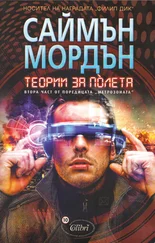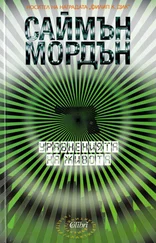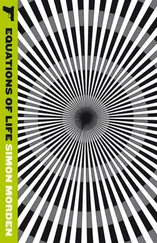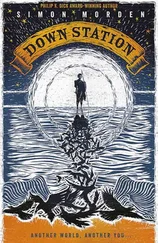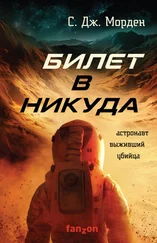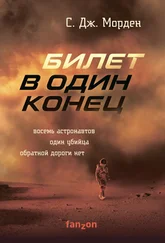He felt himself sliding, and her with him. The soles of his boots banged against the outside of the shaft, and he locked his knees. She was still slipping, and he wasn’t strong enough to hold her.
The bloodied hand that had inconstant contact with the concrete let go and lashed out. It found the metal ring around his left elbow, and her fingers tightened around it. His arm straightened and stretched. His backbrace took her full weight, and he screwed his eyes tight shut against a moment of excruciating pain before he managed to block everything.
She got her shoulders through the gap, and let go of him, pushing back on the sides of the hole and heaving herself across the threshold as far as her waist. Impact gel oozed slick down her front.
Madeleine twisted onto her back and lifted her legs in. “Sorry.”
Petrovitch started breathing again. “Get one of the bombs,” he gasped. He was scared to move in case something had been wrenched off.
She reached down and unhooked one of the spheres. “What now?”
“Okay. Get the rope, tie a bucket to the rope, put the bomb in the bucket. Flick the switch on the top, press the button, and drop it down into the shaft. We’ll have about fifteen to twenty seconds to get out of the tunnel.”
She was already pulling the rope up. Petrovitch brought sensation back to his body, and didn’t enjoy the feeling at all. “ Yebani v’rot. ” Something was irrevocably wrong in his arm. It felt dead, numb, like it was someone else’s limb tacked on to his body.
“Get going,” she said, crouched over her task. “I’ll catch you up.”
“I’m going as fast as I can.” He used his good hand to hang on to a tunnel prop and shuffle himself to sitting, coiled his legs and pushed up the slope. It was neither quick, nor elegant.
The bomb clanged into the bucket. She armed the timer and swung the bucket out over the void.
“Is this going to work?”
“It’s all we have.” The closeness of his voice made her turn, the pale green light of her night-vision goggles seeping down her cheeks. “Do it.”
She reached into the bucket, pressed the button, and let the rope slide through her hands, smearing the nylon cord with blood as it zipped by. Then she closed her fists to brake the bomb’s fall. The bucket rattled, and she let it go again, this time forever.
“Go, Sam.”
“I am.” He growled in frustration at his lack of speed. She climbed over him, past him. He got a knee in the guts and her hand on the side of his head. She reached through his T-shirt to take hold of the metal rod running down his spine, and pulled him backward.
The clock in the corner of his eye clicked around to eleven, twelve—they were still in the tunnel, just reaching the brick wall between them and the stream. She picked him up and threw him out with a grunt that ended in a scream. She jumped, pivoted her hips and tumbled out into the water next to him.
Sixteen, seventeen, eighteen, and Petrovitch was starting to think that his bomb was a squib, and it wasn’t going to go off, when up subtly changed direction. The river water swirled chaotically around him for a moment, and he lifted his head. Something vast and heavy was beginning to move.
“Surface,” he said, but Madeleine was already on her feet. With room to maneuver, she put one arm under both of his and across his chest, lifting him clear and dragging him toward the ladder that led up to street level. The low moan of tortured steel rose suddenly to a shriek and there was a distinct snap as a beam failed. The roaring of falling rubble built from that first sound until the air itself was shaking.
The culvert, already weakened by successive impacts, started to collapse. Bricks popped from the roof and fell with a splash, to be joined moments later by their neighbors. Sheets of bricks were peeling away and choking the water.
Madeleine heaved Petrovitch into the alcove, then swarmed up the rusted ladder to the iron manhole cover far above her head, leaving him there as dust filled his lungs and the river swirled around him.
A crescent, a half-moon of light, then a full circle showing clouds and faces. Something hit the black water next to him: the discarded night-vision goggles, then it was her, splashing down beside him.
“Can you climb?”
“Even if it kills me.” He hooked his good hand around the side of the ladder and she helped his foot onto the lowest rung.
Petrovitch swung his hand above his head, latched on, stepped up, and repeated the process, standing as close in to the ladder as he could so that he didn’t fall too far outward every time he changed his grip.
The air around him was gray, and the noise like a full-throated bellow from a Jihad-constructed giant robot. His head rose above the pavement, half expecting to see some giant mechanical insect thrashing its way across the city.
Hands dipped down to seize him, haul him up, sit him down.
Valentina knelt in front of him. “Did you stop them?”
“No.” He hawked up the dust from his lungs and spat it down on the flagstones. “We have to run.”
Madeleine crawled out. Her head was cut, blood seeping down her scalp and around her ear. The rest of her face was caked in dark dust, as was her armor. Only her eyes were white. He realized that he would look just the same.
Valentina’s only response to Petrovitch’s answer was “How far?”
He didn’t know for sure.
“Michael?”
[Welcome back.]
“Yeah, yeah. We screwed up. Assume you’ve got a one-kiloton demolition nuke in your vault and I’ve just dropped the remains of the Oshicora Tower down the access shaft.” He tried to get up, and inexplicably missed the ground. He was caught and held: Madeleine on one side, Tabletop on the other. “Any chance of containment?”
[There are complex, unknown variables… ]
“I’m asking you to guess. And I need an estimate on damage and fallout concentration. I’d do it myself, but I’ll be busy trying to stay alive.”
They had no cars, no trucks, nothing. They had to do it by foot, or not at all.
[Head north or west. Complete structural failure of buildings not designed for earthquakes is likely up to five hundred meters from ground zero. Containment is possible—I assign a likelihood of fifty percent—but if the fireball reaches the surface, blast and thermal damage will result. Fallout will spread south and east over the Metrozone, promptly lethal and decreasing to below lethal after forty-eight hours.]
“ Chyort. Tell the Metrozone. Sound the alarms.” He was vaguely aware that he was in a stumbling, falling, dragging run, supported on either side. They were heading toward Berkeley Square. Boots clattered on the road, but no one spoke. Everyone was saving their breath for something more important.
Across the river, the ancient sirens started to wail, a tone that rose and fell, putting cold, hard fear into every heart.
It was almost half an hour since a tipped-over camera had recorded the fleeting images of men running past. Almost. Less than two minutes to go.
Of course: they’d armed the bomb outside, breaking open the code keys, verifying them with their commander-in-chief, setting the timer. Thirty minutes to be on the safe side, cope with the unexpected, place it as close as possible to the anathema that was Michael—and discovering that they could get into the same room as the quantum computer, realizing that they could have just put a magazine full of bullets through the machine but still had to contend with a clock that was counting down and was impossible to stop, a clock attached to a small nuclear bomb that was going to have to detonate, no matter what, when the counter reached zero.
It was inevitable.
He imagined them, sitting in the dark of the vault, just the scattered blue-green glow of chemical lights and each other for company. And that bastard bomb, electronic numbers flickering what remained of their lives away.
Читать дальше
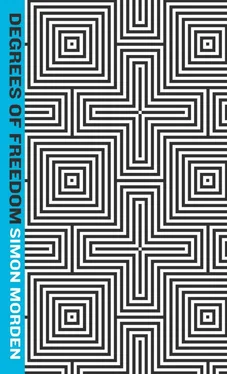
![Саймон Морден - Билет в никуда [litres]](/books/388091/sajmon-morden-bilet-v-nikuda-litres-thumb.webp)
![Саймон Морден - Билет в один конец [litres]](/books/395533/sajmon-morden-bilet-v-odin-konec-litres-thumb.webp)

